
Water is a critical resource, and the quality of the water we use is essential for our health and well-being. Hard water is a common issue in Maryland, and it can lead to damage to plumbing, appliances, and even our skin and hair. You may have hard water if you’ve noticed mineral buildup around your fixtures, soap scum on your dishes, or dingy laundry. As a company leading water treatment in Maryland, we know the importance of identifying hard water and treating it promptly. This blog post will explore how to identify the signs of hard water and the solutions available. Whether you’re a homeowner or a business owner, learning how to identify and treat hard water can make a significant difference in the longevity of your plumbing and appliances. So, let’s dive in and discover how to determine if you have hard water and what you can do about it.
What is Hard Water?
Water is a universal solvent that can dissolve many substances, including minerals. When water comes into contact with certain minerals, such as calcium and magnesium, it can dissolve and carry those minerals along with it. When the concentration of these minerals in the water is high enough, the water is considered “hard.”
The degree of water hardness is measured in terms of the concentration of dissolved minerals in the water. Water with a high concentration of dissolved minerals is considered “very hard,” while water with a low concentration of dissolved minerals is considered “soft.”
The primary minerals that contribute to water hardness are calcium and magnesium. These minerals are found naturally in soil and rock formations and can dissolve into the groundwater as it passes through them. Other minerals, such as iron, manganese, and aluminum, can also contribute to water hardness but are less common.
The hardness of water can vary depending on the geographic location, and the degree of hardness is typically reported in parts per million (ppm) or grains per gallon (gpg). According to the US Geological Survey, water with less than 60 ppm or 3.5 gpg is considered “soft,” while water with more than 180 ppm or 10.5 gpg is considered “very hard.”
In Maryland, the primary cause of water hardness is the state’s geological makeup. Many parts of Maryland are situated on top of limestone formations, which contain high levels of calcium and magnesium. As a result, many residents and businesses in Maryland experience hard water issues.
The effects of hard water can be problematic for homes and businesses. When hard water is heated, it can cause mineral deposits to form, leading to clogs in pipes, reduced water flow, and damage to appliances. Hard water can also cause soap scum buildup on dishes and shower walls, leaving behind spots on glasses and other surfaces.
In addition to these physical effects, hard water can be a nuisance to homeowners and businesses. Hard water can make it difficult to create a good lather with soap, leaving laundry looking dingy and faded. Hard water can also be tough on the skin and hair, causing dryness, irritation, and dullness.
How to Identify Hard Water?
Hard water contains high levels of dissolved minerals, such as calcium and magnesium. These minerals can create several problems in your home or business, including scale buildup on pipes, appliances, and fixtures, decreased efficiency of water heaters and other appliances, and reduced soap and detergent effectiveness. Fortunately, there are several ways to identify whether your water is hard:
White Spots On Dishes Or Glasses
One of the most noticeable signs of hard water is the presence of white spots or streaks on your dishes or glasses. These spots are caused by the water’s buildup of calcium and magnesium minerals. These minerals react with the soap and create scum that is difficult to remove with regular dish soap.
Water Stains On Showerheads Or Faucets
Another common sign of hard water is the buildup of mineral deposits on showerheads and faucets. These deposits can appear as white or yellowish stains and can be difficult to remove with regular cleaning products. The buildup of mineral deposits can also decrease water flow, leading to reduced water pressure.
Skin Irritation After Showering
Hard water can be harsh on skin and hair, causing dryness, irritation, and even eczema. If you’ve noticed that your skin is dry or itchy after showering, hard water may be the cause. The minerals in hard water can strip away the natural oils on your skin, leaving it dry and prone to irritation.
Difficulty Lathering Soap Or Shampoo
If you’re having trouble creating a good lather with your soap or shampoo, hard water may be to blame. The minerals in hard water can react with soap, making it less effective at cleaning. This can result in the residue left on your skin or hair, making it feel sticky or greasy.
Water Hardness Test
To determine the hardness of your water, you can also perform a simple water hardness test. Water hardness test kits are readily available online and at home improvement stores. These kits typically use a small strip of paper that changes color based on the hardness of the water.
If you’re unsure whether you have hard water or are experiencing any of the above symptoms, it’s a good idea to have your water professionally tested. Peninsula Water, as a company leading water treatment in Maryland, can perform a comprehensive water analysis to determine the hardness of your water and recommend a treatment solution.
What are the Effects of Hard Water?
Hard water is a common problem in many households and commercial establishments. It occurs when water contains highly dissolved minerals such as calcium and magnesium. These minerals can accumulate in pipes, appliances, and fixtures, causing various negative effects.
Clogged Pipes And Appliances
The buildup of minerals in hard water can cause pipes to become clogged, leading to reduced water flow and pressure. This can be particularly problematic for appliances such as dishwashers, washing machines, and coffee makers, which rely on consistent water pressure to function correctly. Mineral deposits can also accumulate inside these appliances, causing them to become clogged and reducing their efficiency.
Damage To Water Heaters
Hard water can cause significant damage to water heaters over time. The mineral deposits can accumulate on the heating elements, reducing their effectiveness and causing them to fail prematurely. This can lead to expensive repairs or the need for a complete replacement. In addition, the buildup of minerals can cause the tank to corrode, which can also lead to leaks and the need for costly repairs.
Decreased Lifespan Of Laundry Machines
Hard water can also decrease the lifespan of laundry machines. The buildup of mineral deposits can cause damage to the interior components of the device, leading to reduced efficiency and potentially costly repairs. This can be particularly problematic for commercial establishments such as hotels and laundromats, where laundry machines are constantly used.
Reduced Soap And Detergent Effectiveness
Hard water can reduce the effectiveness of soap and detergent, making cleaning clothes, dishes, and surfaces more difficult. This occurs because the minerals in hard water can react with soap, causing it to form scum rather than creating suds. This can lead to the need for increased cleaning and the use of more soap and detergent, which can be costly over time.
Increased Energy Usage And Higher Utility Bills
Hard water can also lead to increased energy usage and higher utility bills. This is because appliances such as water heaters and laundry machines must work harder to compensate for the reduced efficiency caused by mineral buildup. This can lead to increased energy consumption and higher utility bills.
Investing in a residential or commercial water treatment system is important to prevent these adverse effects of hard water. Companies leading water treatment in Maryland can provide customized solutions based on the specific needs of your home or business. These solutions may include water softeners, reverse osmosis systems, or other water treatment technologies.
Residential Water Treatment for Hard Water
Hard water can significantly negatively affect your home’s plumbing and appliances. Fortunately, several residential water treatment options are available to mitigate hard water’s effects. Here are some of the most effective methods:
Water Softeners
Water softeners are one of the most popular and effective methods of treating hard water. The technology behind water softeners involves ion exchange, where the calcium and magnesium ions responsible for hardness are replaced with sodium or potassium ions. This results in softer water that is less prone to causing damage to plumbing and appliances.
Reverse Osmosis Filtration
Reverse osmosis filtration systems use a semi-permeable membrane to remove impurities from water, including minerals responsible for hardness. These systems effectively remove contaminants from water, producing high-quality drinking water. However, they tend to be more expensive and require professional installation.
Salt-Free Systems
Salt-free systems are a newer technology that uses a special media to alter the structure of the minerals responsible for hardness, making them less likely to adhere to surfaces. These systems are effective at preventing scaling, but they do not remove minerals from the water. Additionally, they tend to be less effective than water softeners at reducing the effects of hard water.
Carbon Filtration
Carbon filtration is a popular method of water treatment in Maryland that uses activated carbon to remove impurities, including minerals responsible for hardness. Carbon filters effectively remove chlorine, sediment, and volatile organic compounds from water. Still, they tend to be less effective than other methods of reducing the effects of hard water.
It is important to note that each of these residential water treatment options has its own advantages and disadvantages. Choosing the right one for your home will depend on several factors, including the level of hardness in your water the size of your home, and your budget. A professional dealing with water treatment in Maryland can help you determine which option is best for you.
Commercial Water Treatment for Hard Water
Commercial establishments such as restaurants and hotels rely on water for various functions, including food preparation, cleaning, and bathing. However, hard water can cause various issues that negatively impact these businesses. Therefore, investing in water treatment in Maryland is essential to address the problems caused by hard water.
Improved Efficiency and Cost Savings
Hard water can accumulate mineral deposits in pipes and plumbing fixtures, causing clogs and damage to the plumbing system. This can result in reduced water flow and increased repair and maintenance costs. Additionally, hard water can decrease the efficiency of equipment that uses water, such as dishwashers and laundry machines. This can result in higher energy consumption and water bills.
By investing in a water treatment system, businesses can reduce the buildup of mineral deposits, improving the efficiency and lifespan of their plumbing and equipment. It can lead to cost savings on repair and maintenance costs and reduced energy and water bills.
Better Customer Experience
The quality of water in commercial establishments can impact the overall customer experience. Hard water can cause staining on dishes and silverware and a soapy residue on glasses and flatware. Additionally, hard water can leave mineral deposits on bathroom fixtures, causing an unpleasant appearance.
A water treatment system can address these issues by softening the water and removing mineral deposits. Doing so can improve the appearance of dishes and silverware and prevent soapy residue on glasses and flatware. Furthermore, treated water can reduce mineral buildup on bathroom fixtures, leading to a more pleasant appearance and improved customer experience.
In addition to these benefits, water treatment in Maryland can contribute to a commercial establishment’s sustainability efforts. Businesses can reduce their environmental impact by reducing the need for harsh cleaning chemicals and decreasing water and energy consumption.
Where To Find The Best Water Treatment In Maryland?
Are you searching for the best water treatment in Maryland? Look no further, as Peninsula Water Conditioning Inc. is one of the most trusted, locally-owned, and authorized companies providing products for water treatment in Maryland. We are committed to offering the best possible solutions for different water problems.
You can contact us by calling (410) 341-6500. We would be happy to assist you in finding the best water treatment system for your home!
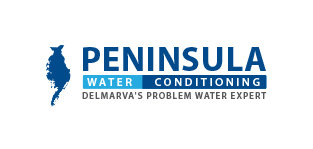

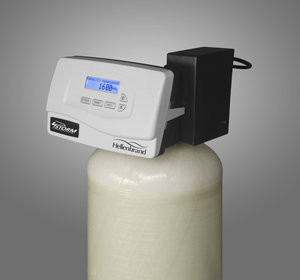
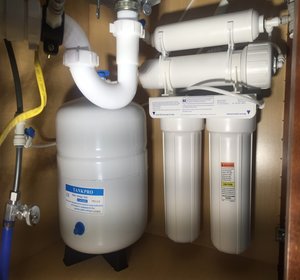
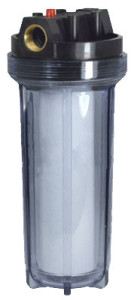
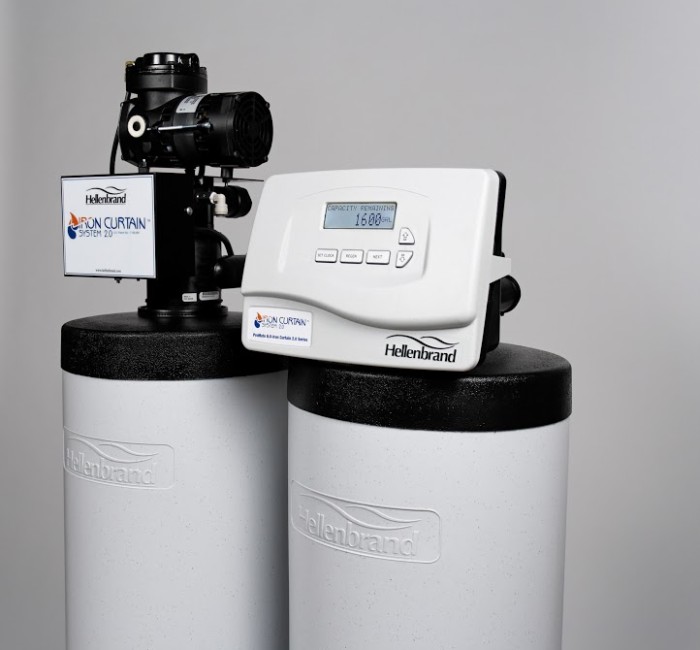
No Comments